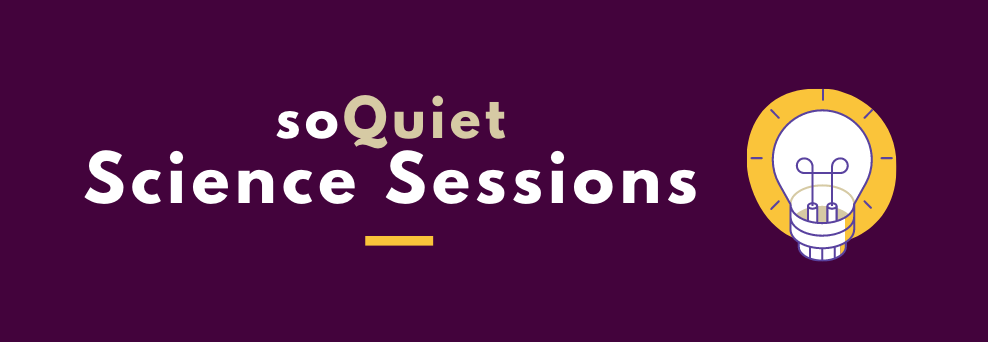soQuiet Science Sessions
soQuiet presents: Science Sessions! Free virtual sessions where you can learn about the latest in misophonia research directly from the researchers themselves. Science Sessions are entertaining as well as educational. Q&A will follow.
Science Sessions are:
• Free of Charge
• Open to All
• Registration is Required
• Donations are Welcome*
In this Science Session, we welcome Danielle Benesch, Heather Hansen, and Dean Orloff to discuss several of their latest misophonia research projects. The work these student researchers are doing represents the future of misophonia knowledge and understanding and we are excited to learn more from these leaders in the field.
Tickets are free, but ticket reservations are required. Donations greatly appreciated.
About the Researchers:
Danielle Benesch completed her bachelor's degree in cognitive science at Osnabrück University in 2019. In 2020, she started her research master's at École de technologie supérieure. During her master's, she has been working on the "Sensitive Ear" project under the supervision of Prof. Jérémie Voix and Prof. Rachel Bouserhal. Her research is centered around the development and evaluation of a wearable technology that removes distressing sounds in real-time, spanning the fields of audio processing, affective computing, and assistive technology design.
Heather Hansen received a bachelor's degree in psychobiology from UCLA in 2016 and a master's degree in cognitive psychology from The Ohio State University in 2019. Currently, she is a PhD student working with Drs. Zeynep Saygin and Andrew Leber at OSU and will defend her dissertation in Spring 2023. Motivated by her experiences with misophonia, she uses a combination of behavioral, physiological, and neuroimaging methods to study the condition. Her recent work focuses on determining how connections in the brain differ in individuals with misophonia, especially with regards to non-typical triggers.
Dean Orloff is an undergraduate student at the Ohio State University studying Systems and Behavior Neuroscience. He currently works as a research assistant under Heather Hansen, co-advised by Drs. Zeynep Saygin and Andrew Leber in the Cognitive Neuroscience and Cognitive Controls labs at OSU. His work focuses on the identification and aggregation of misophonic triggers, a component of the Free Open-Access Misophonia Stimuli [FOAMS] project. He also serves as Director of the BREACH Podcast (Buckeyes Racial/Ethnic and Equity Awareness Centered in Healthcare)
Papers We Will Discuss at this Science Session:
• The FOAMS database of free open-access misophonia stimuli [Unreleased. Project funded by a soQuiet Misophonia Student Research Grant]
• Interfacing the Tympan open-source hearing aid with an external computer for research on decreased sound tolerance [September 2022] by Danielle Benesch, Kocherla Nithin Raj, Rachel Bouserhal, and Jérémie Voix [The Journal of the Acoustical Society]
• Neural evidence for non-orofacial triggers in mild misophonia [August 2022] Heather A. Hansen, Patricia Stefancin, Andrew B. Leber, and Zeynep M. Saygin [Frontiers in Neuroscience]
• What sound sources trigger misophonia? Not just chewing and breathing [June 2021] by Heather Hansen, Andrew B. Leber, and Zeynep M Saygin [Journal of Clinical Psychology]
Reserve your free ticket:
soQuiet was founded to give a voice and support to people who are affected by misophonia, a complex sensory disorder that is often misunderstood.
*soQuiet is a nonprofit charity designated as tax-exempt under Section 501(c)3 by the Internal Revenue Service.
Donations are tax-deductible to the full extent of the law. Our tax ID is #83-3354073.


